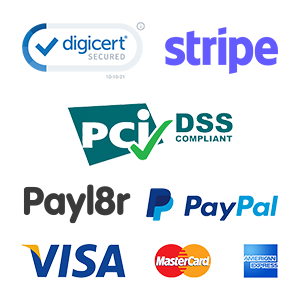Learning online is a great way to complete a course or class during your free time. That means even when you have full-time work during the day or your child has a regular school, you still have the opportunity to learn anytime and anywhere. Online learning is a great way to earn an extra credential, learn a new skill, develop new hobbies, or even completely change your career.
In 2018, there are approximately 5.8 million Americans who have enrolled in an online class. Classes can range from baking courses for adults to Roblox coding courses for kids. Online courses go by many names including MOOC (Massive Open Online Course), Virtual Classrooms, or e-learning. All of them promising the convenience and flexibility that only online education can provide.
Still, it is important to remember that while online courses have numerous benefits it can also become a dangerous place for students. Scams like fake universities and degree mills can be a common problem. Therefore, it is important to always be extra careful with these online learning platforms.
Know About Diploma or Degree Mills
Degree or diploma mills and ‘false’ university are scams that became prevalent since the 19th century. As more and more companies require a college degree for their employees, these fake schools give students diplomas in exchange for money. With the introduction of online courses, these dangerous organizations have become very common.
Diploma mills operate without accreditation from the government to provide education. Typically, they offer a roster of degrees even when they have not received a curriculum approval. To encourage students to enroll, they usually ask for low admission fees and requirements. They also promise shorter periods for students to complete degrees.
No or very limited coursework requirement is one of the most obvious signs that a college is fake. Some may even claim that you can finish a 4-year college degree in just one year without the need of previous credits. If these red flags show up in a school that you are interested in applying, make sure to double-check their accreditation or do more research.
Choose Only Reputable Providers
One of the reasons why online courses are so popular is because they offer so much flexibility for their students. According to David Dodge founder and CEO of Codakid, “There is no better way to teach a child complex things like coding, than self-paced online courses that promote creativity.”
Enrollments are easy and typically do not have a lengthy admission process. To avoid scams, make sure you enroll only with reputable online providers.
Checkpoints for Finding A Reputable Online Course Provider
See If They Practice What They Preach
An online instructor should have plenty of experience in the field that he is teaching and not just teaching it. There are numerous online teachers who are just actually claiming to know about a topic by copying what actual teachers say or do. If you want to find out about their previous accomplishments, make sure to research. For example, an art teacher must have a portfolio of artwork that is credited to his name. These artworks would have been published somewhere online to give students an idea of how he does visual art.
Get to know your instructor better by researching about him/her. Remember, while they may have passed as a qualified instructor their teaching method may not be the best. Still, teaching and sharing knowledge gets better in time. Therefore, it will be helpful if you research how long they have been teaching.
This is why a short free trial is crucial. It is in this short trial classes when you see how the instructors teach. These free trials are especially crucial if you are enrolling your child in an online course where you will have a way to gauge if your child is responding to the teaching method of the instructor.
Review If the Course Have Real Valuable Content
The real value of an online course is in the content that it shares. Legitimate content can be weighted in different ways depending on the course that you are taking. One way is to research online the best options one can take for their career path. Another way to see the value of the course is to review testimonies. Testimonies give you an idea of how other people experienced the course.
If you are not simply convinced with website testimonies, you can always check what people say on review sites. You can also search for their social media accounts. Social media is an open platform and many former students may provide feedback that can help you decide if the course is worth a try.
Safety While Taking Online Courses
Once you have decided to enroll yourself or your child in an online course. It is important to also adopt online safety rules. Consider these simple rules:
Do not post any personal information such as addresses, email address or contact information.
- Think carefully before posting images and videos of yourself.
- Never give out passwords.
- Keep privacy settings high all the time.
- Never meet with people that you speak online.
- Think carefully about the things that you say before you post anything online.

